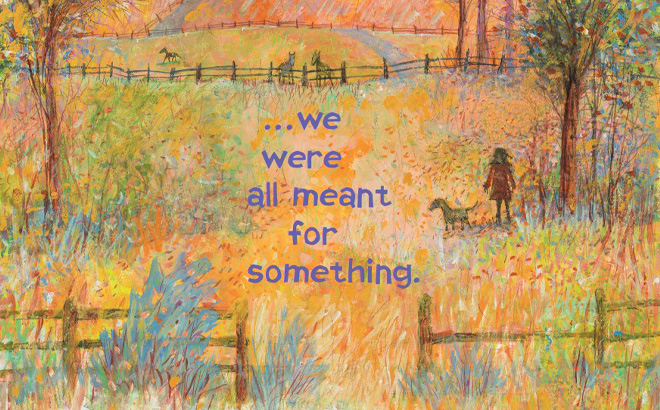April is National Poetry Month. There is a book display on the 4th floor of the library and you should check a book of poetry out and take it home and read it.
A lot of people in America don’t read poems. A lot of people in America think of poems as decorous or obtuse or useless things.
Here’s the official poster of 2023 National Poetry Month, which I think looks decorous and obtuse and useless, but who am I to say–like Frank O’Hara, I’m not a painter.

Once in awhile someone makes a poem that reaches into the collective consciousness and people take notice. Amanda Gorman’s Fury and Faith, a poem about systemic injustice, the Black Lives Matter Movement, and the possibility of liberation was such a poem–a democracy affirming poem, a protest poem, delivered at a the 2021 presidential inauguration.
After the inauguration, lot of people invited Amanda Gorman to talk about and read her poem on TV. I think Fury and Faith is a beautiful poem, an American poem about hope and oppression, and I wish that after Amanda Gorman stopped being on TV all the time, people started reading other poems more often. But I doubt it.
Sometimes I like an American poem without hope. Poems that don’t have birds in them or the word “someday.” Poems about the bus and the uselessness of political discourse, like Claudia Rankine’s poem from Don’t Let Me Be Lonely: “I don’t usually talk to strangers…”–a poem about the ordinary political conversations we chose not to have because some distances are unbridgeable:
I could say something, but my packages are getting heavier by the minute and besides, what is there to say since rhetorically it’s not about our oil under their sand but about freeing Iraqis from Iraqis and Osama is Saddam and Saddam is “that man who tried to kill my father” and the weapons of mass destruction are, well, invisible and Afghanistan is Iraq and Iraq is Syria
Poetry doesn’t need to change the world to be an act of resistance or a statement of witness. Maybe it is is enough to say, like Julian Talamantez Brolaski does, in the poem Stonewall to Standing Rock:
what can poetry do it
cant not not do nothing
Not that many people need to read or hear a poem for it to mean something. Maybe a poem that is a transcription of a dream written for one person and delivered on a bicycle by Mathias Svalina, as part of his “dream delivery service” is the best poem:
Maybe the best poem is on the back of a napkin somewhere, lost in a landfill.
One of my favorite poets, Paul Celan, who spent 18 months in a forced labor camp during World War II because he was Jewish, and whose parents died in a Nazi concentration camp, made poems and kept them in his head because he didn’t have any way to write them down. In his poem Ashglory, written and published after the war, he warns us:
No one
bears witness for the
witness.
And here we are almost 100 years later reading Paul Celan and remembering the horror of fascism, during the rise of a new kind of fascism. Maybe we need poems to remember or uncover things that history has buried, like the Poems of Lost Privilege Company, which are really collages made from the files of youth who were imprisoned from 1910-1925 as part of the American eugenics movement (not in a lot of history books).
Maybe we need poems to connect or to forget. Poems to counter the decorous poetry that we think is the only kind. Poems that describe real sex and real feelings, unflinchingly, like Ariana Reines’ poem “When I Looked at Your Cock, My Imagination Died” does.
Maybe we need poetry about the things we want to believe in or once believed. Maybe we need a poetics that uncovers our own false gods lovingly like Dodie Bellamy does in her book TV Sutras:
…but my cult was nothing like Mark’s cult, my cult was normal.
And maybe these particular poems aren’t the ones that you recognize yourself and your own experience in, but those poem exist and you should find them.
Here’s one of my favorites, written by my teacher Lisa Jarnot. It is a great poem but I like it because it reminds me of the place I grew up and I recognize myself in it:
The Bridge



